8 Jun 2015 | mobile, Youth Board
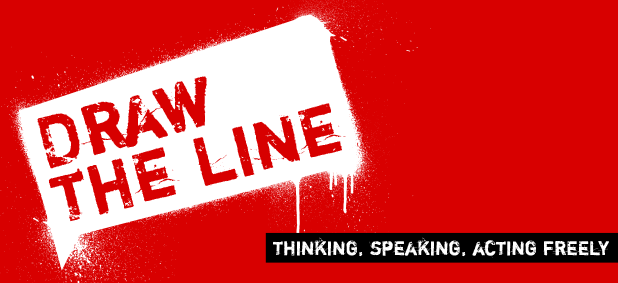
Over the past few months, the Index on Censorship Youth Advisory Board has been coming together to ask difficult, yet essential questions; attempting to spark and promote thought provoking debates and engage the general public in societal issues and conflicts that affect us all.
The topics we have explored in #IndexDrawTheLine can be found below. You can follow the links to see the youth board’s full coverage.
- Returning to the issue of extremism for our penultimate discussion, we looked at whether or not it has a place on campus, arguing that: “Universities should be places where young people have the freedom to learn, debate and use their knowledge to challenge guest speakers.”
But the conversation doesn’t stop there. We have to keep encouraging open debate and a level of transparency in a world full of censorship. It is imperative as new threats to free speech arise each day, and old threats recur. It is the responsibility of all of us to provide a voice for the voiceless, represented and unrepresented alike.
To join in future discussions, follow the #IndexDrawtheLine hashtag on Twitter.
This article was posted on 8 June 2015 at indexoncensorship.org
5 Jun 2015 | Academic Freedom, Events, mobile, Volume 44.02 Summer 2015
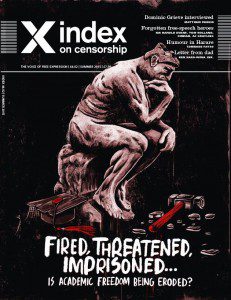
Education, the beginning of so many roads. But if we start closing some of those avenues down, arguing they are too dangerous or challenging, do we begin to travel in a terrifying direction?
From no-platform policies to campus extremism, and student sit-ins to the correct balance between safety and liberty, join us to explore the global situation for freedom of expression on campus.
Come to our lively Question Time-style discussion, chaired by Index on Censorship’s CEO Jodie Ginsberg and introduced by magazine editor Rachael Jolley.
With speakers including:
- Nicola Dandridge, chief executive, Universities UK
- Greg Lukianoff, president and chief executive, Foundation for Individual Rights in Education, USA
- Lord Ken Macdonald, barrister, former director of public prosecution, and warden, Wadham College, Oxford
- Julie Bindel, journalist, broadcaster, author and feminist campaigner
- Siana Bangura, blogger, writer, spoken word poet
Followed by a summer drinks reception.
When: Wednesday 1 July, 6:30-7:30pm event, followed by drinks reception
Where: Clore Centre, Birkbeck College, University of London, WC1E 7HX (Map/directions)
Tickets: Free, registration is required as space is limited.
Presented in conjunction with The Conversation, SAGE Publishing and Arts Council England.

5 Jun 2015 | mobile, Youth Board

In the latest #IndexDrawtheLine, we’ve been asking the question: where should governments draw the line on everyday surveillance?
Mass surveillance has been a controversial issue, notably since former contractor for the US National Security Agency (NSA) Edward Snowden leaked information about the agency’s domestic spying. Today, some governments worldwide monitor phone calls, text messages and/or social media communications within the countries. Granted, mass surveillance may well be beneficial for governments to fight terrorism and ensure national security, but some people are concerned about the invasion of their privacy and personal life.
As well as the debate about this question on Twitter, we asked some students based around the world to give us their views. The students and their respective views can be seen in the form of photographs below.
One user on Twitter argued that the line should be drawn as per the law and added, “This right of OURS ‘…shall not be violated and no warrants shall issue but upon probable cause'” referring to the fourth amendment to the United States constitution.
Other responses suggested that governments should be able to ensure national security without invading the privacy of the people. One of the students below argues that the line should be drawn so that “my mother knows more about me than BIG BROTHER”, referring to the leader of the fictitious state from George Orwell’s novel Nineteen Eighty-Four.
The general consensus seems to be that government surveillance should not happen unless it is proved there is a genuine threat to the safety and security of the people.
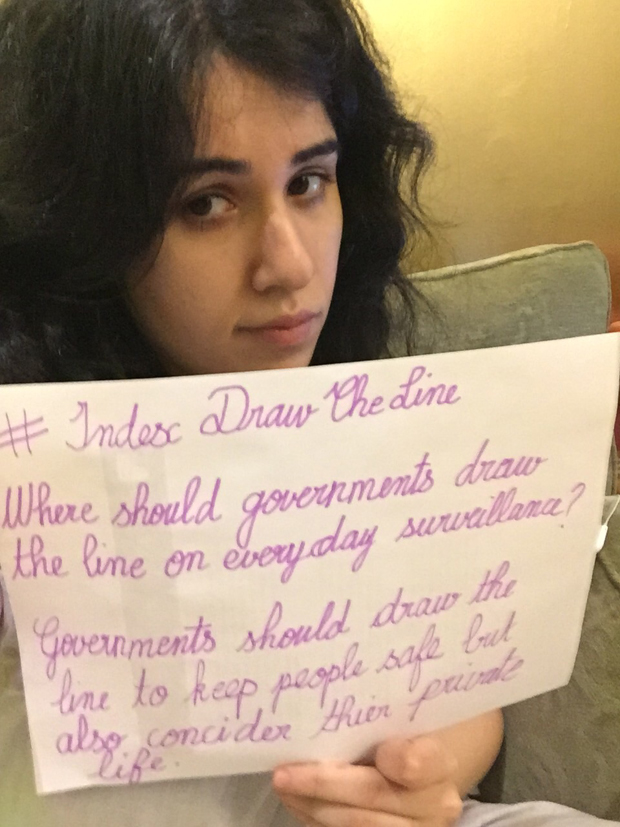
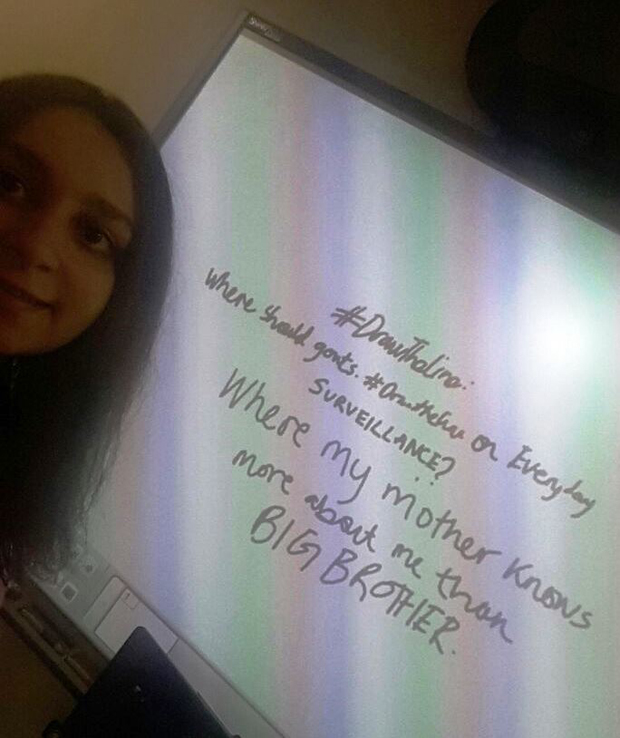
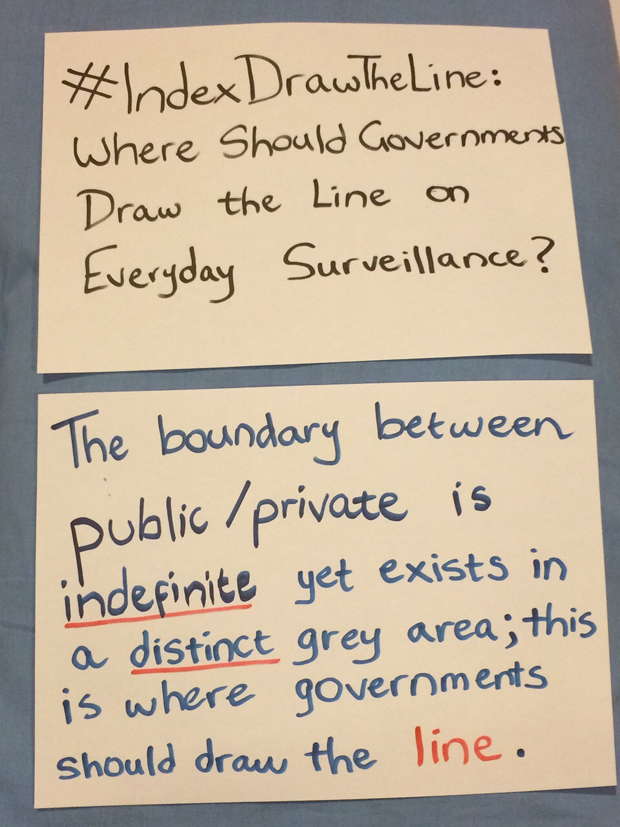
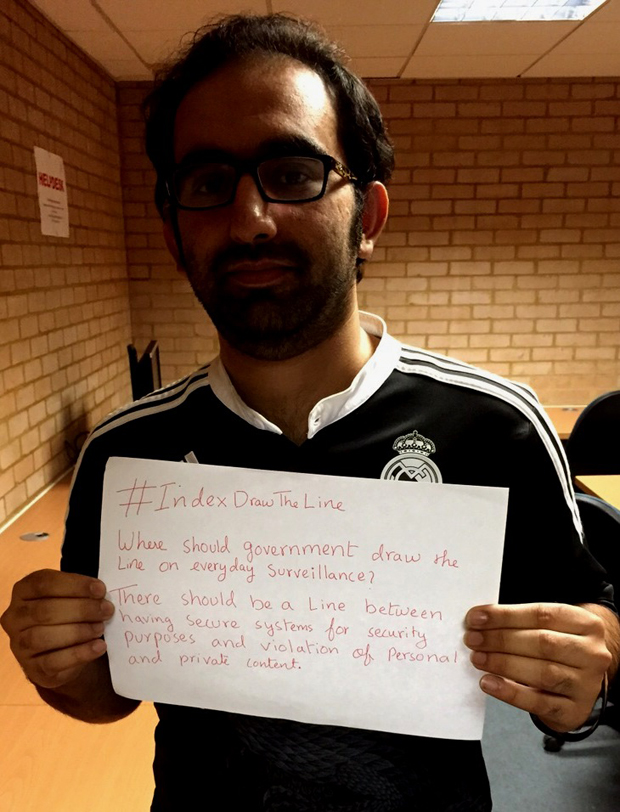
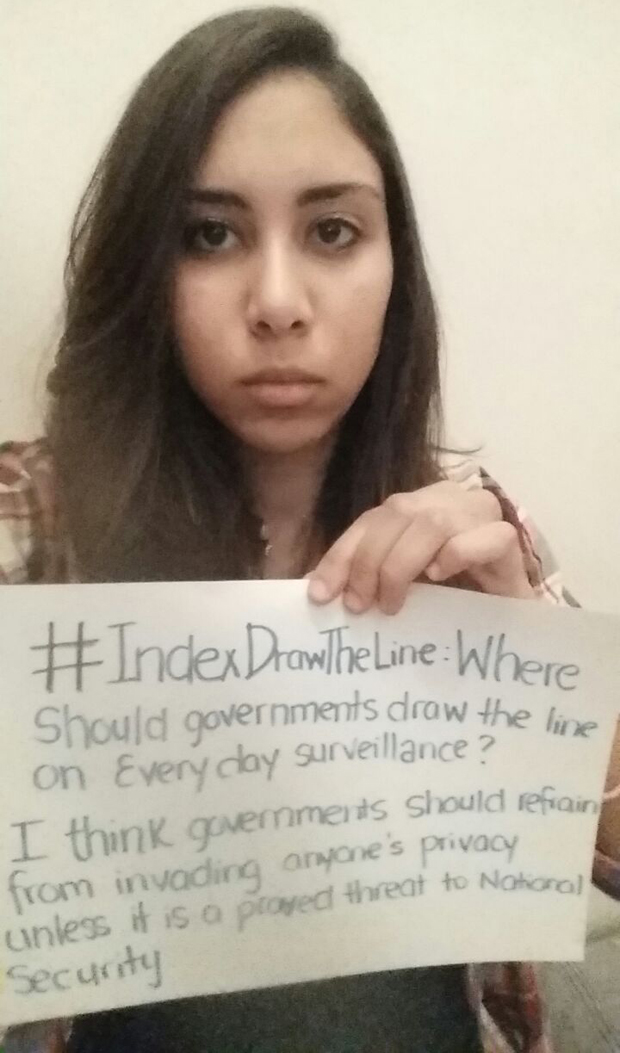
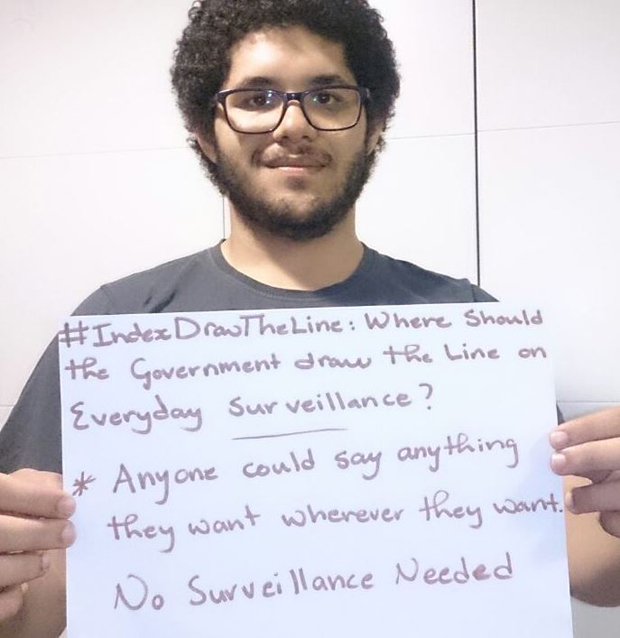
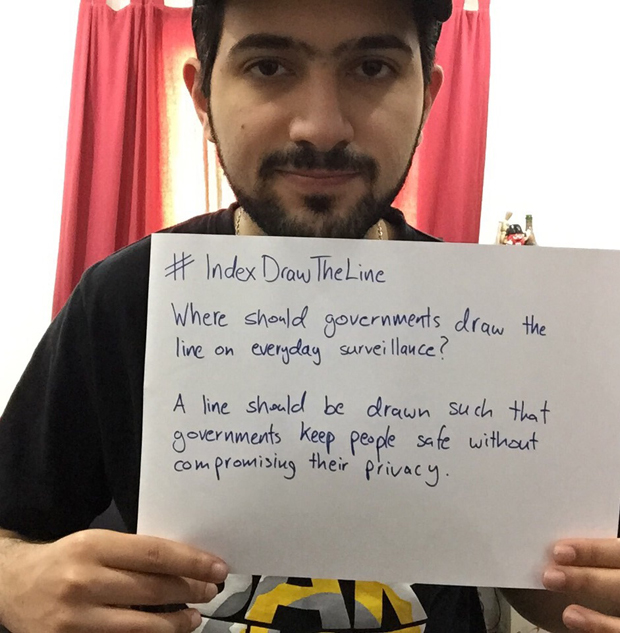
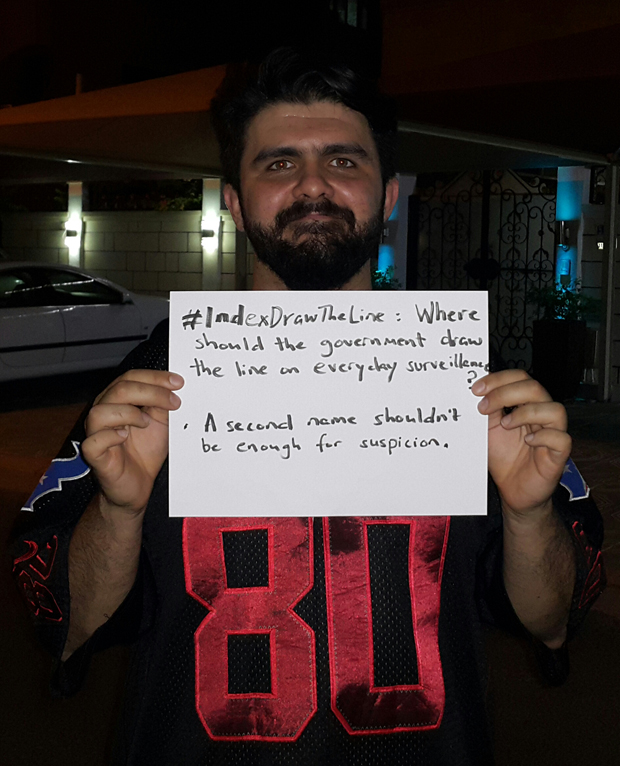
This article was posted on 6 June 2015 at indexoncensorship.org
4 Jun 2015 | Campaigns, Counter Terrorism, mobile, Statements
Index on Censorship considers Tony Blair’s proposals on hate speech to be dangerous and divisive. Blair, who is to be appointed chair of the European Council on Tolerance and Reconciliation (ECTR) has defended plans to lower the the barriers on what constitutes incitement to violence and make Holocaust denial illegal.
“These suggestions — far from protecting people — are likely to have the opposite effect, driving extremist views underground where they can fester and grow,” said Jodie Ginsberg, CEO of Index on Censorship. “Instead, we should be protecting free expression, including speech that may be considered offensive or hateful, in order to expose and challenge those views.”
Individuals should always be protected from incitement to violence and that protection already exists in law, as do stringent laws on hate speech. Further legislation is not needed.











